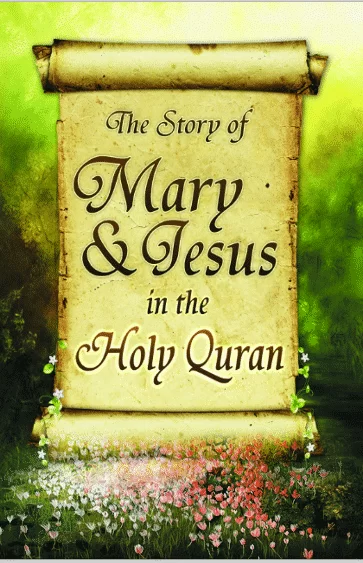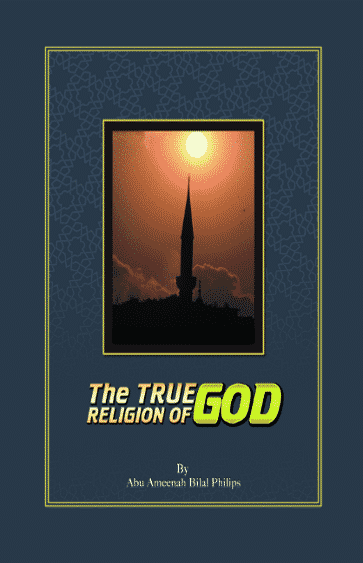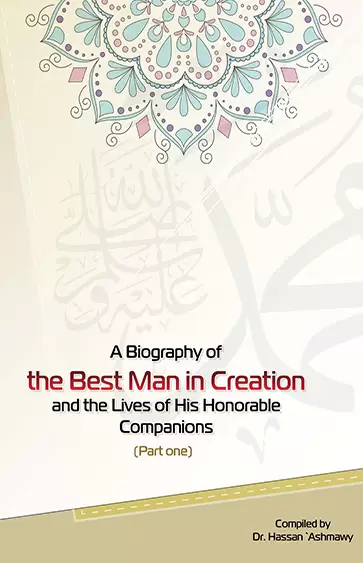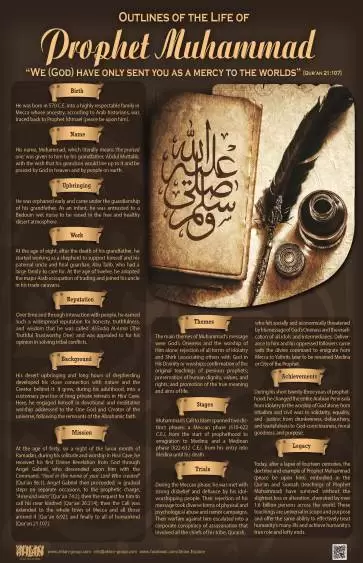Who wrote the Bible? It is one of the tough questions regarding Christianity. It is crucial to the authenticity of the Bible and the divinity of Christianity. In this article, we will investigate the question from many angles and leave you with the truth before you.
Here we will learn the following:
- How to know who wrote the Bible?
- Who wrote the Bible?
- Who wrote the first five books of the Bible?
- Who wrote the Gospels in The New Testament?
- Are the Authors of the Gospels anonymous?
- Did God reveal the gospel of Luke?
- How many books are there in the Bible?
- Are Biblical Manuscripts Reliable?
- What are the Earliest manuscripts of the Bible?
- An Example of Corruption of Manuscripts of the Bible?
- The Bible Is A Human Product
- The Authors of of the Bible
How to know who wrote the Bible?
No one has ever said it would be an easy mission to find the right path, but those humble souls who search sincerely, will definitely find the Light of God:
وَٱلَّذِينَ جَـٰهَدُوا۟ فِينَا لَنَهْدِيَنَّهُمْ سُبُلَنَا ۚ وَإِنَّ ٱللَّهَ لَمَعَ ٱلْمُحْسِنِينَ
“As for those who struggle in Our cause, We will surely guide them along Our Way. And Allah is certainly with the good-doers.”
[Quran 29:69]
Nowadays, the followers of many religions claim that their scriptures are infallible. To test the divinity of a sacred book, it is inevitable to go in two main directions:
1. Book’s Content:
The truth seeker has to study the book itself, to judge the logic underlying its message, and check if it contains contradictions, errors, or inaccuracies.
2. Book’s Authenticity:
The degree of the book’s authenticity can be determined by looking at how it was preserved from the time of its revelation until it reached us.
In this article, we will briefly shed light on the Bible’s authenticity, since it is one of the most important sacred texts, whose authenticity is a big topic of debate and research among the Christians themselves.
Who wrote the Bible?
The Bible is a collection of religious texts that was written by many authors over a period of many centuries. The Old Testament, also known as the Hebrew Bible, was written over a period of approximately 1,000 years, from around the 12th century BCE to the 2nd century BCE. The New Testament, traditionally, was written over a period of approximately 50-100 years, from around the 1st century CE to the 2nd century CE.
The authors of the books of the Bible are not always known. The writers should be around 40 writers, but many of the books were written anonymously or under pseudonyms. However, scholars generally agree that the books of the Old Testament were written by a variety of authors, including prophets, scribes, and priests, while the books of the New Testament were written by early Christian leaders and scribes.
The question logically follows is, “Who are these 40 writers? Are these 40 writers of the Bible well- known and agreed upon by biblical scholars?” Without doubt, it is interesting to know that the Gospel according to Luke, which we are currently reading, is quite similar to the Greek manuscript discovered in Egypt. However, it is more important to know for sure who the author of this Greek manuscript is.
Unfortunately, when digging deep about who those 40 writers are, one gets shocked by the abundance of sentences like “maybe Paul is the writer”, “the author is unknown”, “probably collected and edited by Ezra”,etc. Such sentences give the truth seeker a huge sense of uncertainty. Am I supposed to risk my own destiny and put my confidence in words written by an unknown writer?
Let’s look at a few examples and make our own assessments:
Who wrote the first five books of the Bible?
The Pentateuch is the first five books of the Bible. The designation “Penta-teuch” derives from Greek penta (five) plus teûchos (vessel, in the sense of a case for scrolls). These five books are Genesis, Exodus, Leviticus, Numbers, and Deuteronomy. They are also collectively called the Torah.
Until the late nineteenth century, the consensus view of biblical scholars was that Moses wrote these first five books of the Bible. The Church father Jerome (AD 340–427), however, suggested that Ezra the Priest wrote the Pentateuch in the fifth century BC based on notes made by Moses.
Since the sixth century AD, doubts have been expressed about whether Moses was the author of all the Penta-teuch. However, it was only in the mid-seventeenth century that the first relatively systematic discussion of the issue appeared. By the late nineteenth century, the scholarly consensus began to turn against Moses being the author of any part of it.
1. Third Party Narrative:
In the first five books of the Bible, there are more than 700 statements, which prove not only that God is NOT the Author of these books, but also that EVEN Moses himself had no hand in them. Open these books at random and you will see:
• “And the Lord said unto him. Away, get thee down . . .”
• “And Moses said unto the Lord, the people neither the words of God nor of Moses.
They indicate the voice of a third person writing from hearsay.
2. Moses Can’t narrate what happens during and after his death!
Could Moses have been a contributor to his own obituary before his demise? Did the Jews write their own obituaries? “So Moses . . . DIED . . . And he (God Almighty) BURIED him (Moses) … he was 120 years old when he DIED … And there arose not a prophet SINCE in Israel like unto Moses …” [NIV Deut. 34:5-10]. Who is the writer of such words?!
Who wrote the Gospels in The New Testament?
The Gospels are the first four books of the New Testament, which describe the life and teachings of Jesus Christ. The authors of the four Gospels are traditionally believed to be Matthew, Mark, Luke, and John.
Matthew, a former tax collector and one of Jesus’ disciples, is traditionally considered to be the author of the Gospel of Matthew. Mark, a disciple of Peter and an associate of Paul, is traditionally considered to be the author of the Gospel of Mark. Luke, a physician and companion of Paul, is traditionally considered to be the author of the Gospel of Luke. John, one of Jesus’ disciples, is traditionally considered to be the author of the Gospel of John.
However, it should be noted that there is ongoing debate among scholars about the actual authorship of the Gospels, and the majority of them argue that they may have been written by anonymous authors or by authors other than those traditionally attributed to them.
Read: Who Wrote the Quran.
Are the Authors of the Gospels anonymous?
Yes. The arguments that support the notion of the anonymity of the author of the Gospels are the following: What about the New Testament? Why does every Gospel begin with the introduction — ACCORDING TO … ACCORDING TO … Why “according to?” Because not even one of the renowned four thousand copies has its author’s autograph! As a result, “according to” is assumed!
All four gospels are named after men who lived during or shortly after Christ’s early ministry. Tradition considers these men the authors, but there’s one problem: not one of these books names its author.
The gospels are anonymous—so how do we know who wrote them?
Are the internal and external evidence strong enough to end the ongoing debate about the gospels’ authors? Unfortunately, the answer is no.
There are several arguments that have been put forward by scholars in support of the idea that the authors of the Gospels may have been anonymous. Some of these arguments include:
1. Lack of explicit authorial attribution:
Unlike many other ancient texts, the Gospels do not explicitly state who their authors were. While the traditional authorship attributions are based on early Christian traditions and later church fathers’ statements, the Gospels themselves do not provide such information. This has led some scholars to suggest that the authors may have intentionally chosen to remain anonymous.
2. Differences in writing styles and theological emphases:
Each of the four Gospels has a unique writing style and theological emphasis, which suggests that they were written by different authors with different perspectives and purposes. Some scholars argue that this makes it unlikely that the traditional authorship attributions are correct, as it would be unusual for four different people to produce such distinct works.
3. Late authorship and attribution:
Some scholars have pointed out that the Gospels were not attributed to their traditional authors until several decades after they were written. This raises questions about how reliable these attributions are and whether they were based on solid evidence or simply on later Christian traditions and assumptions.
4. The use of sources and traditions:
The Gospels appear to have been based on earlier sources and traditions, such as oral traditions and written documents, which were likely used and modified by multiple authors over time. This could explain why the Gospels have similarities and differences in content and style, even if they were not written by anonymous authors.
Overall, while there is ongoing debate about the authorship of the Gospels, the idea that they may have been written by anonymous authors remains a plausible and well-supported view among many scholars.
Did God reveal the gospel of Luke?
Let’s read what Luke wrote in the beginning of his Gospel and judge its divinity by ourselves:
“Many have undertaken to draw up an account of the things that have been fulfilled among us, just as they were handed down to us by those who from the first were eyewitnesses and servants of the word. With this in mind, since I myself have CAREFULLY INVESTIGATED everything from the beginning, I TOO DECIDED to write an orderly account for you, most excellent Theophilus, so that you may know the certainty of the things you have been taught.”
[NIV Luke 1:1-4]
Although many Bible scholars attribute this Gospel to Luke, we still need to answer an important question, “Did God reveal such statements, “I myself have CAREFULLY INVESTIGATED & I TOO DECIDED to write” to the author of this Gospel?
How many books are there in the Bible?
The Bible consists of the old and new testaments. Each contains a number of books. The shocking fact here is that the exact number of books is not agreed upon between different Christian denominations. For instance, the Catholic and Orthodox Bible contains 73 books, seven more books than the Protestant Bible. Moreover, the Ethiopic Bible contains 81 books. The difficult question here: what are the universal criteria we should use to decide if a book is canonical or not?
More interestingly, when reading today’s Bible, we find more than 31 references to books, which cannot be found anywhere:
“ Now the acts of David the king, first and last, behold, they are written in the book of Samuel the seer, and in the book of Nathan the prophet, and in the book of Gad the seer,”
[NIV 1 Chronicles 29:29]
Where is the book of Samuel the seer or the book of Nathan the prophet?
They are simply lost, as scholars tell us.
Are Biblical Manuscripts Reliable?
Christians, when defending the authenticity of the Bible, ask a legitimate question: “How about the thousands of discovered manuscripts? Are they enough to prove that the Bible is authentic?”
Before we jump to conclusions based solely on the large number of manuscripts available, let us know some information regarding the nature and quality of these manuscripts:
- 94% of the manuscripts dates back to 8th century or later.
- 1% of the manuscripts go back to the 1st and 2nd century AD.
- Manuscripts from the first five centuries make up less than 2.5% of the total.
- 66% of the manuscripts consist of just one or two papers.
- The manuscript P52, which dates back to 120 AD, contains only two words.
- Only 59 manuscript contains the whole New Testament and most of them are very late.
- There exist no two identical manuscripts.
What are the Earliest manuscripts of the Bible?
Actually, there are thousands of discovered manuscripts, which make us admire the accuracy of the current the Bible version. However, what is the relation between the original books and today’s Bible?
The fact that only 1% of the manuscripts dates back to the 1st and 2nd century AD makes biblical scholars call the “obscure zone” in the history of Bible transmission.
The famous bible scholar, Helmut Koester, gives us the big picture of the second century state of the text when he declares, “the second century was completely a period of wild variation.”
He put his finger on the malady that explains our failure to keep faith with the originality of the text known from the third century:
“The text of the Synoptic Gospels was very unstable during the first and second centuries [. . .] there is no guarantee that the archetypes of the manuscript tradition are identical with the original text of each Gospel. . . . New Testament textual critics have been deluded by the hypothesis that the archetypes of the textual tradition which were fixed ca. 200 CE [. . .] are (almost) identical with the autographs. This cannot be affirmed by any evidence. On the contrary, whatever evidence there is indicates that not only minor, but also substantial revisions of the original texts have occurred during the first hundred years of the transmission.”
An Example of Corruption of Manuscripts of the Bible?
Christians are very fond of quoting the following verse as proof that his Bible is the Word of God.
“All scripture IS given by inspiration of God, and IS profitable for doctrine, for reproof, for correction, for instruction in righteousness.”
(2 Timothy 3:16 — Authorized Version by Scofield)
But, is this important verse the same in all versions?
Note the “IS’s
” in capitals. Bible scholars tell us that they do not occur in the original Greek. The British and foreign bible society has produced the closest translation of the original Greek, which deserves to be reproduced here: “Every inspired scripture has its use for teaching the truth and refuting error or for reformation of manners and discipline in right living.”
(2 Timothy 3:16)
Can you see the huge difference in this meaning of this pivotal verse due to this minor change? The first tells us that ALL the scripture is holy and is useful while the second tells us that Holy Scripture is useful.
The Bible Is A Human Product:
In this video the speaker mentions that “writings themselves did not descend from the heavens neither did the table of content, and after all the books are written and edited there was still a matter of compiling certain books and excluding others.” As if that was not enough to let scholars argue a bit. Translation of Bible have turned out to deliver a lot of falsified info, unless you have a copy of sixteen hundred year old codex Sinaiticus and can read the Bible in Greek.
At the end of the video the speaker says that instead of having a book already complete or dictated word-for-word to a prophet. God has inspired us to write the book by our human words, and while the inspiration itself was from God. The work itself was entrusted to us.
The Authors of of the Bible:
To conclude, the study of Bible’s authenticity tells us there are thousands of manuscripts, disagreeing with one other in what verses and even books they contain. Different translations teach entirely different things in places. Some often leave out entire chapters and verses or contain footnotes warning of possible error due to uncertainty about the reliability of the numerous manuscripts. For instance, when you read the RSV, you get astonished that the Revisers of the RSV say:
- Who is the author of the book of “JUDGES?” Answer: “Possibly Samuel.”
- Who is the author of the book of “JOSHUA?” Answer: “Major part credited to Joshua.”
- Who is the author of “RUTH?” Answer: “Not definitely known”
- AND Who is the author of: 1 st SAMUEL?………… Answer: Author “Unknown”
- 2nd SAMUEL……….. Answer: Author “Unknown”
- 1st KING?…………….. Answer: Author “Unknown”
- 2nd KING?…………… Answer: Author “Unknown”
- 1 st CHRONICLES? …. Answer: Author “Unknown, probably …”
- 2nd CHRONICLES? …. Answer: Author “Likely collected …”
And so the story goes. We must admire the humility of these Bible scholars, but their “possiblys”, “probablys”, and “likelys” open the door of huge suspicions and put the truth seeker in a critical state of not being able to submit to a book, around which big questions still have no answers.
Muslims did not need to wait until 20th century to hear the testimony of the bible scholars against its authenticity.
The issue was already settled in the Quran 1400 years ago:
فَوَيْلٌۭ لِّلَّذِينَ يَكْتُبُونَ ٱلْكِتَـٰبَ بِأَيْدِيهِمْ ثُمَّ يَقُولُونَ هَـٰذَا مِنْ عِندِ ٱللَّهِ لِيَشْتَرُوا۟ بِهِۦ ثَمَنًۭا قَلِيلًۭا ۖ فَوَيْلٌۭ لَّهُم مِّمَّا كَتَبَتْ أَيْدِيهِمْ وَوَيْلٌۭ لَّهُم مِّمَّا يَكْسِبُونَ
[Quran 2:79]
“So woe to those who distort the Scripture with their own hands then say, “This is from Allah”—seeking a fleeting gain! So woe to them for what their hands have written, and woe to them for what they have earned.”
What about the Quran? Can it be the Word of God?
Visit the section of the Quran to explore more!
Read: Who Wrote the Quran.
References:
- “Hunting for the word of God” by Samy Ameri.
- “Is the Bible God’s Words” by Ahmed Deedat.
- “Who wrote that?” by Donald Ostrowski
















